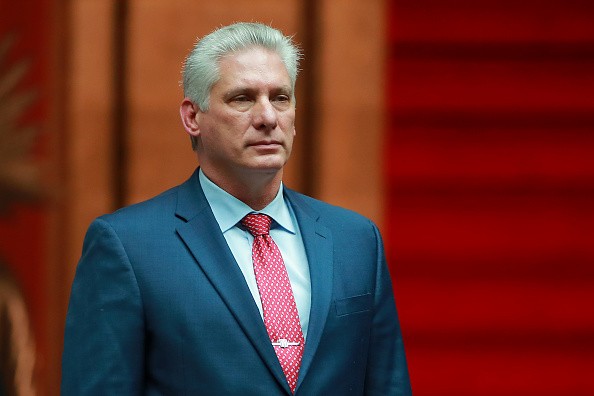Cuban Leader Announces Monetary Unification, Raises Salaries
Cuban leader Miguel Diaz-Canel announced on Thursday the monetary unification between the island's two currencies and also said that workers' salaries would be increased.

After 26 years, Cuba will go away with one local currency beginning next month. Monetary unification was a pending task that has already been approved by the Communist Party for many years.
Monetary Unification
For several years, Cubans have been using two currencies, and these are the Cuban peso, which is used to pay the wages, and the CUC, or the local hard currency.
The Communist Party has been using these currencies for years, even though monetary unification was already approved several years ago.
On Thursday, Miguel Diaz-Canel officially announced that effective Jan. 1, the Cuban peso would be the only local currency to circulate on the island.
The announcement was made through a short video, which was broadcast on state television. With him was Communist Party's first secretary Raul Castro.
According to a Miami Herald published report, the official exchange rate would be 24 pesos to a dollar. Diaz-Canel said the measure "was not a magic solution" to the island's problem, but it would allow the nation to move forward.
The Cuban president noted that the CUC would disappear. One CUC is equivalent to 25 Cuban pesos for the population, but the government maintained a fictitious parity with state companies' dollars. Many sectors also used a fictitious parity between the Cuban peso and the dollar for the state budget.
Miguel Diaz-Canel further noted that the Cuban peso exchange rate would not lose value against the dollar for the population, but it will for state companies. Economists have complained about the double currency in Cuba for years because it obscures state-owned companies' accounting.
Cuban Government Announced Increase in Wages
Along with the announcement of monetary unification, the Cuban government also announced raises for state salaries and pensions.
The minimum monthly state salary was set at 2,100 Cuban pesos, while minimum social security monthly pensions will go from 300 pesos up to 1,520 Cuban pesos.
That means that a journalist working for the state media would earn 3,610 pesos a month, but this is slightly lower than a high school teacher earning 4,010 pesos.
Additionally, doctors who have one specialty will make 5,560 pesos. The Cuban government added that they would also reward directors of state entities.
However, despite the wage increase that the Cuban government announced and the 24-to-1 exchange rate, this might not be enough to counter the increased costs of the basic food basket and the elimination of many subsidies.
Meanwhile, Cuba economists show plans to increase the prices of subsidized food and basic services to around 1,500 pesos. The plan was based on the minimum state pension, but it will leave the older population in a more vulnerable state.
The measures could lead to higher inflation and losses in Cubans' purchasing power in one of the worst moments ever for the country's economy, along with the impact of the state sector.
Subscribe to Latin Post!
Sign up for our free newsletter for the Latest coverage!
















